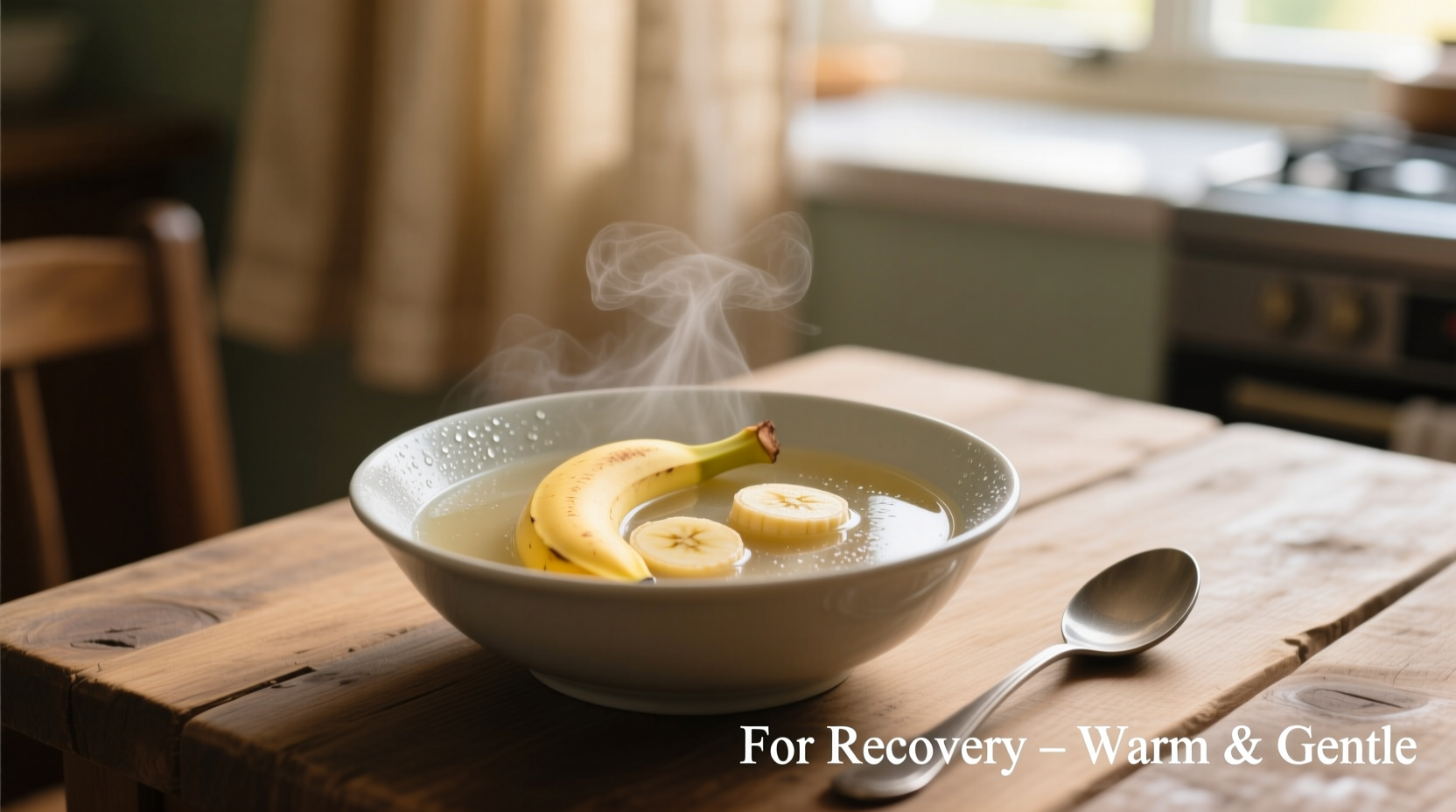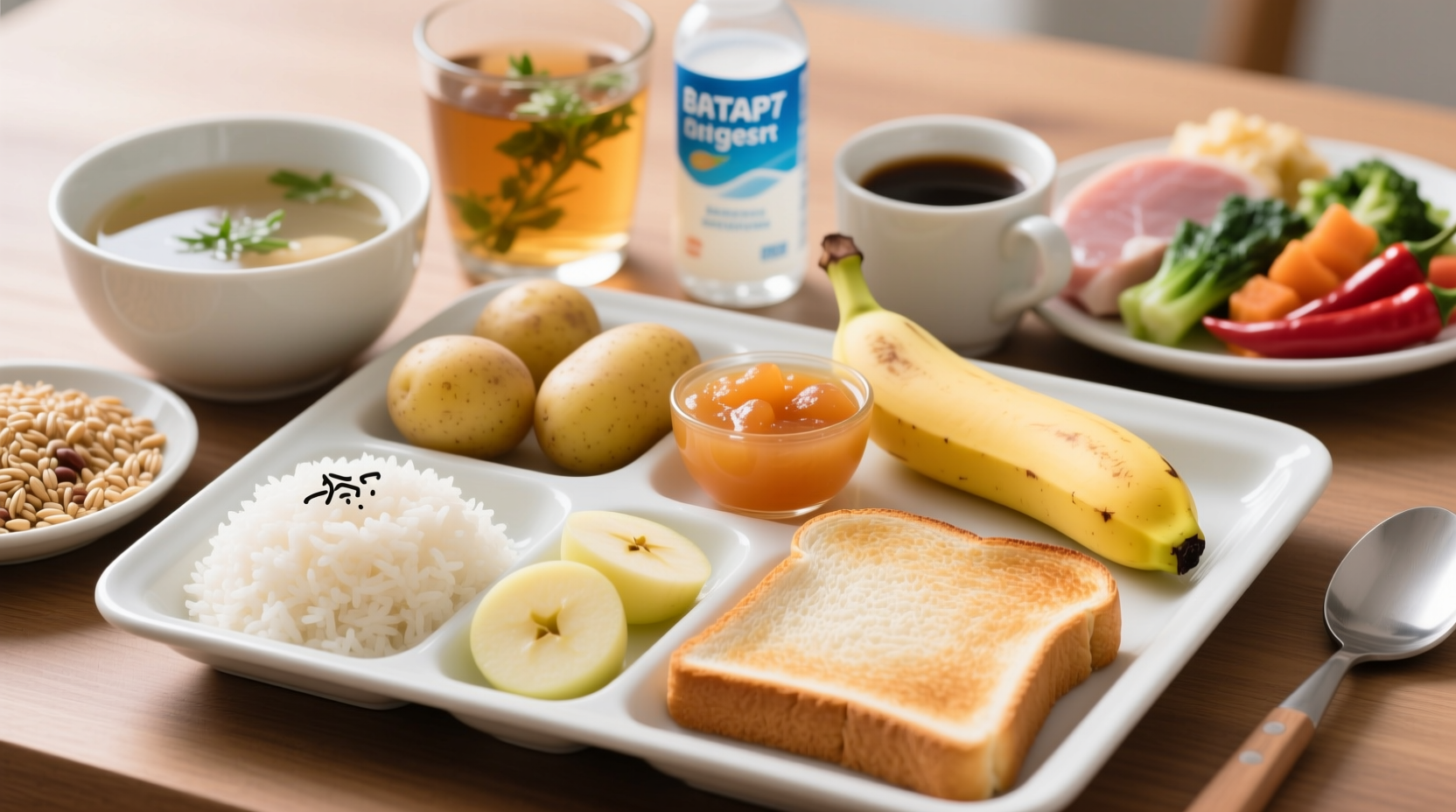After food poisoning, start with clear fluids like oral rehydration solutions, then progress to bland foods including bananas, rice, applesauce, and toast (BRAT diet) once you can keep liquids down. Avoid dairy, fatty foods, caffeine, and alcohol for at least 48 hours as your digestive system recovers.
Food poisoning strikes fast and leaves you feeling miserable, but what you eat during recovery can significantly impact how quickly you bounce back. As someone who's navigated countless kitchen emergencies through decades of culinary expertise, I've seen how proper post-food poisoning nutrition makes all the difference between a speedy recovery and prolonged discomfort.
Your Immediate Recovery Timeline
Understanding the progression of recovery helps set realistic expectations. Most healthy adults recover from mild food poisoning within 1-3 days, but the right nutrition strategy can shorten this timeline significantly.
| Recovery Stage | Timeline | Recommended Foods | What to Avoid |
|---|---|---|---|
| Acute Phase | First 12-24 hours | Clear fluids only | All solid foods |
| Transition Phase | 24-48 hours | BRAT foods, broth | Dairy, fatty foods |
| Recovery Phase | 48-72 hours | Lean proteins, cooked vegetables | Spicy foods, caffeine |
| Full Recovery | 3-5 days | Normal diet (gradually) | Raw foods (until fully recovered) |
Phase 1: The Critical First 24 Hours
During the initial phase when vomiting and diarrhea are most severe, your primary focus should be rehydration, not food. The Centers for Disease Control and Prevention (CDC) emphasizes that dehydration poses the greatest risk during food poisoning.
Start with small sips of clear fluids every 5-10 minutes. The World Health Organization's oral rehydration solution (ORS) formula—6 level teaspoons of sugar and 1/2 level teaspoon of salt dissolved in 1 liter of clean water—provides the optimal electrolyte balance for recovery. Commercial electrolyte solutions work well too, but avoid sports drinks which contain too much sugar that can worsen diarrhea.
According to Mayo Clinic guidelines, wait until you've gone 6-8 hours without vomiting before attempting solid foods. Your stomach needs this rest period to begin healing.

Phase 2: Introducing the BRAT Diet (With Important Updates)
The BRAT diet (bananas, rice, applesauce, toast) has been recommended for decades, but current medical understanding shows important limitations. While these bland foods are generally well-tolerated, they lack sufficient protein and nutrients for complete recovery.
A 2022 review published in the Journal of Gastroenterology and Hepatology noted that while BRAT foods help firm stools, they should only be used for the first 24-48 hours of recovery. Prolonged use can lead to nutritional deficiencies since these foods are low in protein, fat, and essential vitamins.
Here's how to properly implement the BRAT diet with necessary modifications:
- Bananas: Rich in potassium which is depleted during diarrhea
- Rice: White rice is better tolerated than brown during initial recovery
- Applesauce: Contains pectin which helps firm stools
- Toast: Plain, dry toast (not buttered) is easiest to digest
After 24 hours on BRAT, gradually introduce boiled potatoes, oatmeal, and crackers to add variety and nutrients.
Phase 3: Building Your Recovery Meal Plan
As you progress beyond the initial recovery phase, your nutritional needs change. The National Health Service (NHS) recommends adding protein sources within 48-72 hours to support tissue repair.
Excellent next-step foods include:
- Boiled or baked chicken (without skin)
- Scrambled eggs (cooked with minimal oil)
- Cooked carrots and zucchini
- Plain yogurt with live cultures (after 72 hours)
Probiotics become increasingly important during this phase. Research from the American Gastroenterological Association shows that specific probiotic strains like Lactobacillus rhamnosus GG can reduce the duration of infectious diarrhea by approximately 1 day when taken during recovery.
Foods That Will Set Back Your Recovery
Certain foods can trigger renewed symptoms even when you're starting to feel better. The Academy of Nutrition and Dietetics identifies these as particularly problematic during recovery:
- Dairy products: Lactose intolerance often develops temporarily after food poisoning
- Fatty or fried foods: Require more digestive enzymes that your system can't produce yet
- Spicy foods: Irritate the already sensitive digestive tract
- Caffeine and alcohol: Act as diuretics, worsening dehydration
- Raw fruits and vegetables: Difficult to digest until fully recovered
Many people make the mistake of returning to their normal diet too quickly. Your digestive system needs time to rebuild its normal bacterial balance and enzyme production. Rushing this process can prolong symptoms or cause a relapse.
When to Seek Medical Attention
While most food poisoning cases resolve with home care, certain symptoms require immediate medical attention. The CDC recommends contacting a healthcare provider if you experience:
- Diarrhea lasting more than 2 days
- Signs of severe dehydration (dark urine, dizziness, extreme thirst)
- Blood in vomit or stool
- High fever (over 102°F or 39°C)
- Neurological symptoms like blurred vision or muscle weakness
Vulnerable populations—including infants, elderly adults, pregnant women, and those with compromised immune systems—should seek medical advice sooner rather than later.
Preventing Future Episodes
Understanding safe food handling practices reduces your risk of future food poisoning incidents. The Food and Drug Administration recommends these key practices:
- Wash hands thoroughly before handling food
- Cook meats to proper internal temperatures
- Keep raw meats separate from other foods
- Refrigerate leftovers within 2 hours
- Discard food that's been in the "danger zone" (40-140°F) for more than 2 hours
Remember that food poisoning recovery isn't just about what you eat—it's about strategic progression that supports your body's natural healing process. By following this evidence-based approach, you'll recover more comfortably and completely.











 浙公网安备
33010002000092号
浙公网安备
33010002000092号 浙B2-20120091-4
浙B2-20120091-4